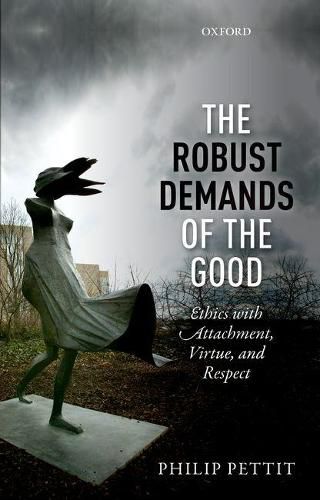Readings Newsletter
Become a Readings Member to make your shopping experience even easier.
Sign in or sign up for free!
You’re not far away from qualifying for FREE standard shipping within Australia
You’ve qualified for FREE standard shipping within Australia
The cart is loading…






Philip Pettit offers a new insight into moral psychology. He shows that attachments such as love, and certain virtues such as honesty, require not only their characteristic positive behaviours in the actual world (i.e. as things are), but preservation of those characteristic behaviours across a range of counterfactual scenarios in which things are different from how they actually are. The counterfactual ‘robustness’, in this sense, of these behaviours is thus part of our very conception of these attachments and these virtues. Pettit shows that attachment, virtues, and respect all conform to a similar conceptual geography. He explores the implications of this idea for key moral issues, such as the doctrine of double effect and the distinction between doing and allowing. He articulates and argues against an assumption, which he calls ‘moral behaviourism,’ which permeates contemporary ethics.
$9.00 standard shipping within Australia
FREE standard shipping within Australia for orders over $100.00
Express & International shipping calculated at checkout
Philip Pettit offers a new insight into moral psychology. He shows that attachments such as love, and certain virtues such as honesty, require not only their characteristic positive behaviours in the actual world (i.e. as things are), but preservation of those characteristic behaviours across a range of counterfactual scenarios in which things are different from how they actually are. The counterfactual ‘robustness’, in this sense, of these behaviours is thus part of our very conception of these attachments and these virtues. Pettit shows that attachment, virtues, and respect all conform to a similar conceptual geography. He explores the implications of this idea for key moral issues, such as the doctrine of double effect and the distinction between doing and allowing. He articulates and argues against an assumption, which he calls ‘moral behaviourism,’ which permeates contemporary ethics.